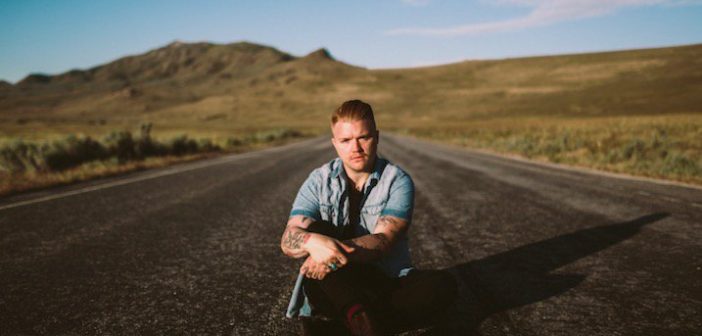Aaron Gillespie discusses turning pain into art on Out of the Badlands
Interview and Words by Annette Hansen
Aaron Gillespie is no stranger to struggle having spent a large portion of his life as a working musician drumming and singing for Underoath, fronting The Almost and even performing as a solo artist. When Gillespie’s personal life took a harsh turn, it didn’t take long for him to know where to channel his frustrations.
“I think the greatest songs of all time are usually written out of need or want or misunderstanding,” Gillespie muses.
Having dealt with the heartbreaking reality of divorce, Gillespie craved a constructive way to work out everything he was experiencing and feeling.
“[Divorce] was the last thing that I thought that I would go through as a man,” Gillespie relays. “I was kind of convinced I was in the right spot in my life, and I wasn’t.”
For Gillespie, he sought relief in the recording studio using music as his personal brand of therapy. The result was Out of the Badlands, Gillespie’s third solo album which he released on Aug. 19. The album features an array of new original pieces as well as reworked tracks from both Underoath and The Almost and even a few covers.
While the covers and stripped down renditions of his past work offer a nice throwback, it’s the original tracks that display the bite of the record. “These are definitely the most brutal songs I’ve ever written,” Gillespie explains.
But writing with such harsh honesty isn’t a new tactic for the long time songwriter. Having written music in bands and on his own since he was a teenager, finding solace in his music is nothing short of habit.
“People cope with things in different ways,” Gillespie says. “For me, [music]is kind of my outlet… [the recording studio]is where I head when things go bad.”
And this habit has become an integral and active part of Gillespie’s coping. “For me it’s really natural,” Gillespie describes. “It’s like a basic response to the way that I function. I’m not going to have a heartbreak situation or a devastating situation and go drink a fucking bottle of whiskey. I’m going to drink three drinks of whiskey and go write it all down.”
Out of the Badlands continues to illustrate Gillespie’s raw emotional state with its limited and straightforward production.
“I didn’t feel like I could go and do a really big, smooth, polished [album],” Gillespie expresses. “I kind of just wanted it to be guttural and honest and leave people wanting for something else.”
While much of the album is deeply personal and therapeutic for Gillespie, he doesn’t feel that Out of the Badlands is solely for his own healing. “I think that there are people that need to receive that art for them to find coping mechanisms of hope,” Gillespie says. “When you’re an artist and you’re writing from a place of pain, I think there’s something about knowing that someone will hear this who it helps.”
Struggle is often seen as a road block for many, but for Gillespie, the experience of struggle pushed him to deal with it creatively. He turned a dark situation into inspiration. Having come out the other side, Gillespie doesn’t see his pain as a setback.
“I think when you go through something as drastic as what I went through, it makes you see who you are as an artist,” Gillespie explains. “I really saw how far down I could get in the world… I think you see how bad it gets and then it gets better, or you don’t put yourself in that position and it gets worse.”




